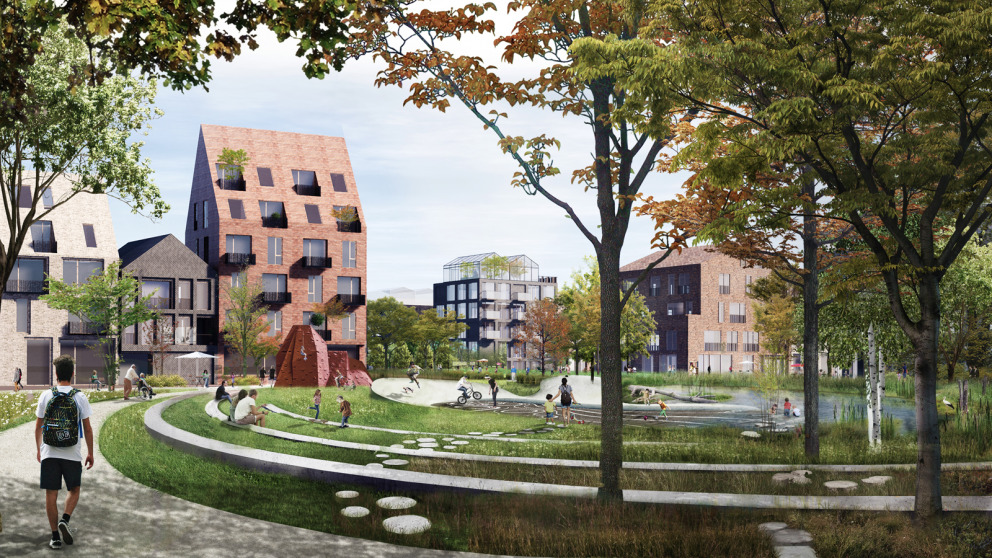Fostering Sustainable Urban Development
02.09.2022
What can local authorities do to ensure that planning processes deliver on the promise of creating sustainable neighbourhoods? A new study by the Institute for Advanced Sustainability Studies (IASS) titled "Achieving more district sustainability- Success factors from three municipal planning processes" compares three urban planning processes: the Grüne Heyde development in Norderstedt, Oberbillwerder in Hamburg and the older Rotbäumlesfeld estate in Ludwigsburg. In all three cases, sustainability was a key consideration in the planning processes.

“Our study shows that making use of competencies external to public administration and the explicit designation of these projects as 'models' played an important role in delivering more sustainable outcomes,” explains lead author Manuela Graetz the findings of the project "Sustainability as a Guiding Concept for Urban Development (NachWo)", which is funded under the BMBF’s “Zukunftsstadt" programme. “Efforts to link residential development with the broader strategic goals of local government and the adoption of innovative approaches to project management also played into their success. Without these factors, planning processes soon ran into problems."
A well-thought-out land policy with a strategic vision is another important factor, explained Graetz. The researchers note that the impacts of public communications, public perceptions, and citizen participation are more difficult to gauge and these aspects are explored in Chapter 5 of the study.
Policy recommendations informed by this research offer valuable guidance for both the development of new residential estates and the revitalization of existing neighbourhoods. In order to tackle the challenges of our time – from climate change to species extinction, resource scarcity, digitalization, globalization and demographics change – and do justice to the construction sector’s immense footprint, local governments must raise their sustainability ambitions and pursue bolder targets, the authors argue. Reflecting this, the researchers make several recommendations targeting town planners and municipal authorities in general:
1. Raise the level of ambition.
2. Be flexible in project management and dare to try new things.
3. Make use of local strategic goals.
4. Make extensive use of external competences and integrate them strategically.
5. Emphasise the model character of projects.
6. Make participation more productive.
Solutions to improve the sustainability of our consumption, housing, work, mobility, education systems and social activities are available and can be implemented at the local level, with individuals and communities playing a central role in broader transformation processes. Planning processes for new residential developments offer windows of opportunity to shape future lifestyles in households, neighbourhoods, and cities that local authorities can and should harness to improve sustainability. As an outlook, the study offers ideas for requirements for 'the transformative neighbourhood'.
Publikationen:
Graetz, M. (2022): Mehr Nachhaltigkeit im Quartier erzielen: Handlungsempfehlungen für Kommunen. - IASS Report, August 2022. https://doi.org/10.48481/IASS.2022.033
